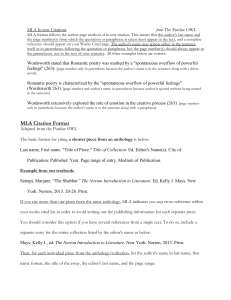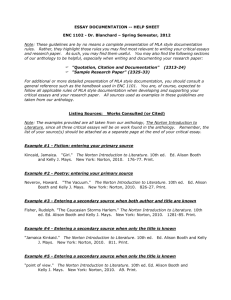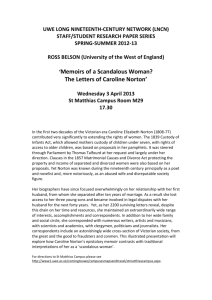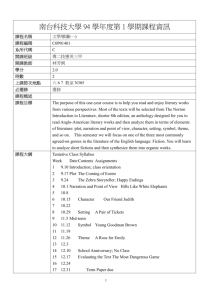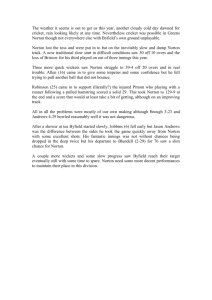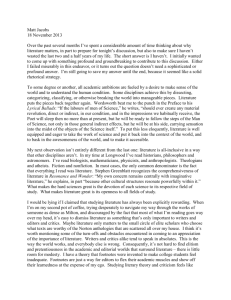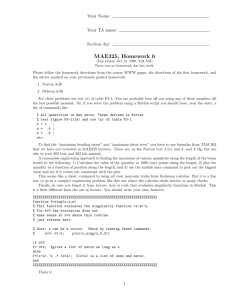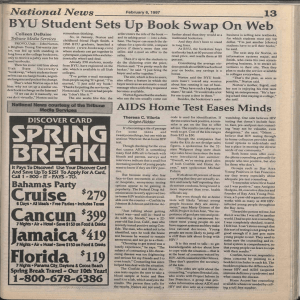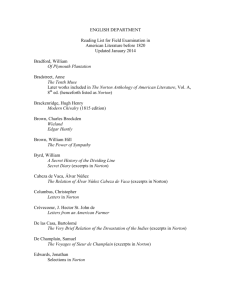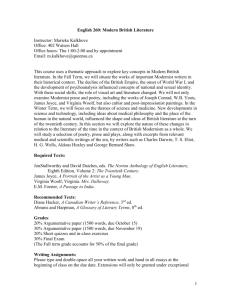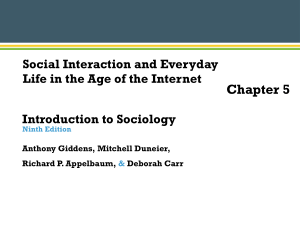MLA Format Sample Paper | Citation Examples
advertisement
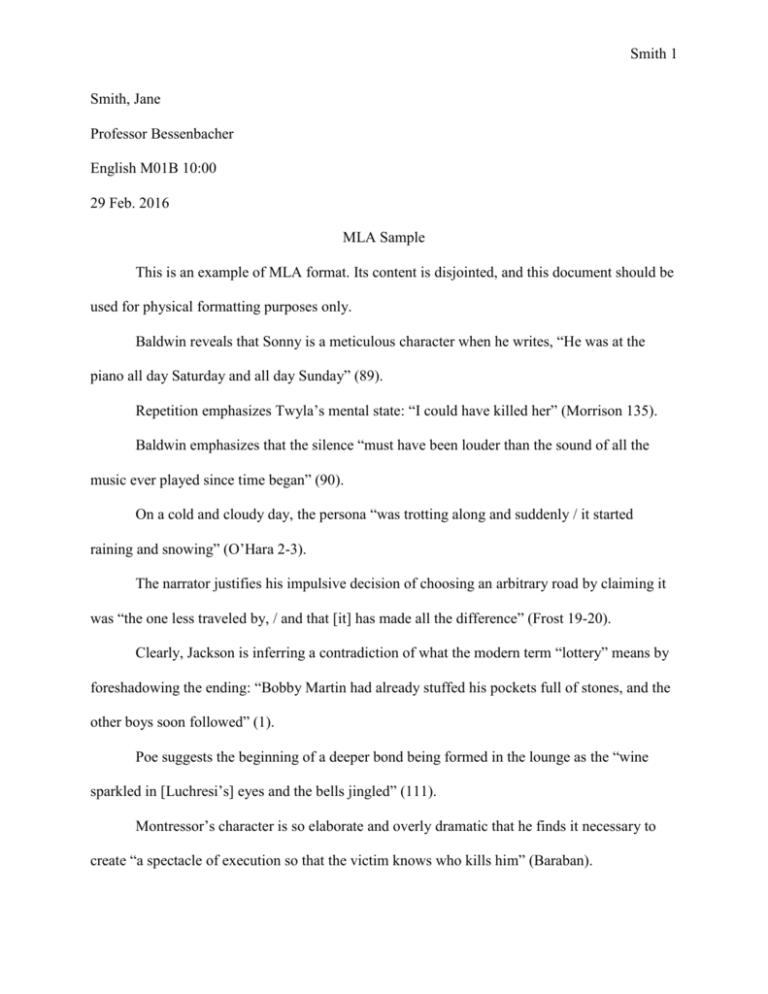
Smith 1 Smith, Jane Professor Bessenbacher English M01B 10:00 29 Feb. 2016 MLA Sample This is an example of MLA format. Its content is disjointed, and this document should be used for physical formatting purposes only. Baldwin reveals that Sonny is a meticulous character when he writes, “He was at the piano all day Saturday and all day Sunday” (89). Repetition emphasizes Twyla’s mental state: “I could have killed her” (Morrison 135). Baldwin emphasizes that the silence “must have been louder than the sound of all the music ever played since time began” (90). On a cold and cloudy day, the persona “was trotting along and suddenly / it started raining and snowing” (O’Hara 2-3). The narrator justifies his impulsive decision of choosing an arbitrary road by claiming it was “the one less traveled by, / and that [it] has made all the difference” (Frost 19-20). Clearly, Jackson is inferring a contradiction of what the modern term “lottery” means by foreshadowing the ending: “Bobby Martin had already stuffed his pockets full of stones, and the other boys soon followed” (1). Poe suggests the beginning of a deeper bond being formed in the lounge as the “wine sparkled in [Luchresi’s] eyes and the bells jingled” (111). Montressor’s character is so elaborate and overly dramatic that he finds it necessary to create “a spectacle of execution so that the victim knows who kills him” (Baraban). Smith 2 Works Cited Baldwin, James. “Sonny’s Blues.” The Norton Introduction to Literature. 11th ed. Ed. Kelly J. Mays. Las Vegas: Norton. 2014. 73-100. Print. Baraban, Elena V. "The Motive for Murder in 'The Cask of Amontillado'." Rocky Mountain Review 58.2 (2004): 47-62. Rpt. in Short Story Criticism. Vol. 111. Detroit: Gale, 2008. Literature Resource Center. Web. 25 Jan. 2016. Morrison, Toni. “Recitatif.” The Norton Introduction to Literature. 11th ed. Ed. Kelly J. Mays. Las Vegas: Norton. 2014. 131-47. Print. O’Hara, Frank. “Poem.” The Norton Introduction to Literature. 11th ed. Ed. Kelly J. Mays. Las Vegas: Norton. 2014. 460. Print.
